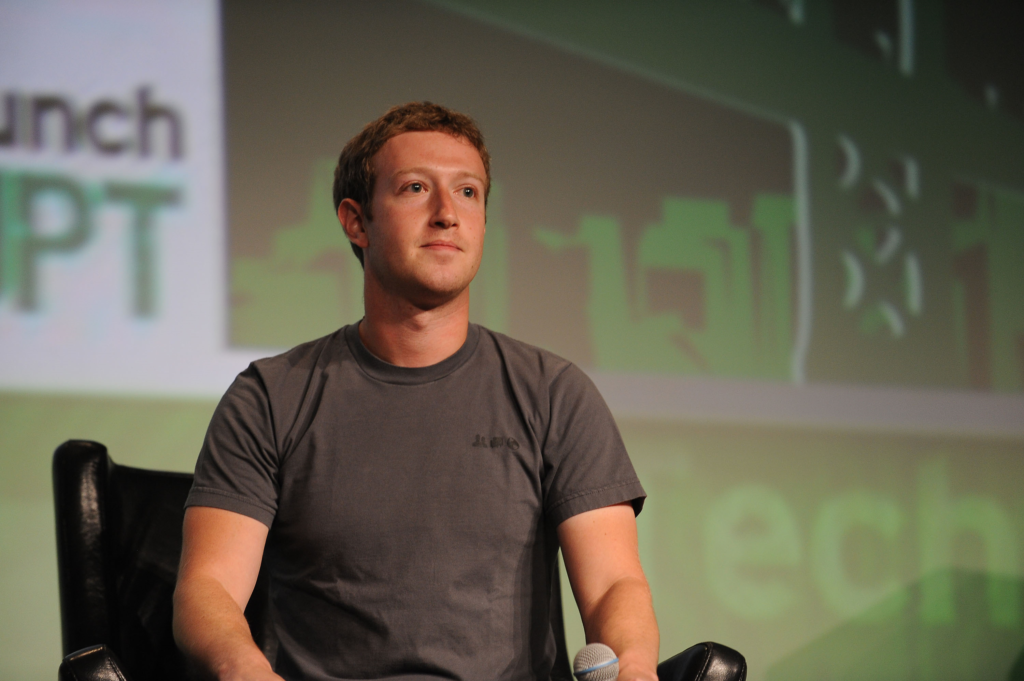
Social media has become a part of radio’s promotional, marketing, and in some cases, sales plans. Over the past decade, its use has skyrocketed, led by the almighty Facebook. Always first in both “cume” and daily “time spent socializing” in our Techsurveys, Facebook has emerged as a go-to tool for stations, as well as personalities.
Our resident Digital Dot Connector – Seth Resler – has been thinking long and hard about how Facebook’s recent problems impact all of  us, but also how radio broadcasters will be affected by an unsettled environment in the world’s leading social media platform. Trying to make sense out of a landscape that is now very much in flux goes to the heart of Seth’s “take” on where Facebook might be headed – and where that leaves radio. – FJ
us, but also how radio broadcasters will be affected by an unsettled environment in the world’s leading social media platform. Trying to make sense out of a landscape that is now very much in flux goes to the heart of Seth’s “take” on where Facebook might be headed – and where that leaves radio. – FJ
Recently, I was at the Michigan Association of Broadcasters’ Great Lakes Media Show in Lansing, when a social media manager told me that her radio station had seen a significant dropoff in interaction on Facebook since the social network had altered its algorithm in the wake of criticism over its role in the 2016 election.
Other radio stations have reported the same thing to me: huge declines in the number of people seeing and engaging with their content since Facebook has shifted its focus away from displaying business page content and towards personal interaction.
“How do we get more people to see our posts?” the social media manager asked me.
I don’t know.
I don’t know because Mark Zuckerberg doesn’t know.
If you’ve been following the news, you know Facebook is facing huge problems and even bigger questions at the moment. In the wake of revelations that Cambridge Analytica used the social network to gather data on millions of people and use that data to exploit political divisions, Facebook’s stock nosedived, losing nearly $5o billion in value. After several days of being MIA, Zuckerberg finally made the rounds in the media to apologize.
 But Facebook’s problems go well beyond a mere public relations issue. While facts are still coming to light, it’s possible the social network was weaponized by foreign actors in an attempt to hobble the most powerful nation on the planet.
But Facebook’s problems go well beyond a mere public relations issue. While facts are still coming to light, it’s possible the social network was weaponized by foreign actors in an attempt to hobble the most powerful nation on the planet.
Your radio station’s decline in interaction is just one small piece of a much larger and murkier picture. Facebook will inevitably be forced to change the way it does business. In the past, they’ve never been particularly good at communicating about changes they make to their platform. Now, as the company faces pressure from angry users, investors, and government regulators, there’s no telling what they’ll do as they muddle through this mess.
One thing is sure: Whatever happens, it will impact your radio station…along with thousands of other businesses across the globe.
So what is a radio station to do?
We’ve often talked about the difference between “renting” and “owning” channels. When you create original content and post it on your website, you are using a channel that you own. When you post content on Facebook, you are renting a channel that somebody else owns.
Of course, the rent has always been free…or at least, so it seemed. Now we’re discovering that “free” comes with a heavy price. For users, that price is a loss of privacy. For businesses, that price is an algorithm with rules that can be changed at a moment’s notice, without explanation or notification.
Over the years, our annual Techsurveys have shown that Facebook is, by far, the dominant social network used by radio listeners. So dominant, in fact, that we’ve advised many radio stations to focus the vast majority of their social media efforts on Facebook. If you had limited resources — and every radio station I know has limited resources — the smart move is to shortchange Twitter, Instagram, and Snapchat, and spend your time, creativity, and effort on Facebook instead.
In the wake of recent revelations, it may be time to revisit that advice. Not because we expect Facebook to lose its position as the dominant social network — although some users may abandon it out of privacy concerns — but because it may be unwise for radio stations to put all of their eggs in Zuck’s basket. It’s time for your radio station to diversify its social media efforts by increasing its investment in other channels.
Of course, to do this, you’ll need more eggs. If your radio station has been skating by with a single, less experienced staffer handling your social media strategy, it’s time to step up your game. You will need to invest serious resources into hiring, training, and tools for social media. Offer digital staffers salaries that are competitive with other industries. Send your digital staffers to training programs and conferences outside of the radio space to help them gain a competitive edge. Invest in social media management software that enables your team to successfully execute their strategy.
Because if there’s one takeaway in the current controversy, it’s that social media is an incredibly powerful communication tool — powerful enough to disrupt nations — and broadcasting companies need to treat it as seriously as they treat their airwaves.
In just a few weeks, Techsurvey 2018 will be presented, revealing new metrics that will help radio stations of all formats make these decisions. With more than 64,000 respondents in the sample, we’ll have data on more than a dozen formats that will provide guidance and direction.
For some stations, investment in other social platforms will be an effective tool for connecting to your audience. For others where Facebook has been the only portal that’s mattered, your social impact will most certainly suffer.
But as Fred reminded me, there’s always that other form of “social interaction” – street presence and eye contact with your audience. As the weather improves all over the country, this might be a good time to connect more personally with your audience.
And at least you own your station van.
- A Simple Digital Treat to Thank Your Radio Listeners This Thanksgiving - November 13, 2023
- Interview Questions When Hiring Your Radio Station’s Next Digital Marketing Manager - November 6, 2023
- A Radio Conversation with ChatGPT: Part 2 – Promotions - October 30, 2023




In the playground with other parents, at the dance classes, waiting for school to get out and with my teenagers, i have never heard one parent express any concerns about Facebook data issues. They all get in their cars and punch around for a song they like. Make it more complicated than that and suffering begins.
No, but that may change in the wake of this latest development. I suspect the general public is going to have a renewed interest in “data privacy” moving forward.
Seth – Brilliant, disturbing and the beginning of a new blueprint. Thanks
Thanks for reading, Tom!
MANY have lost the art of human interaction. Maybe, just maybe this will help us get REAL face to face–time, instead of face to facebook….
Yes, there’s a lot of value in face-to-face interaction, and it’s an art that everyone should master. At the same time, Cambridge Analytica was reportedly able to gather data on 50 million Facebook users in just a month. Their tactics were undoubtedly questionable and possibly unethical, but it shows that these tools are a powerful way to reach people at speeds and quantities that simply can’t be done with face-to-face interaction. For radio to stay competitive, it will need to master these tools and use them responsibly.
Other than morning shows or Talk hosts (Sports or News Talk) there is little engagement happening between most stations and their listeners. It’s a soulless product that is
Losing TSL faster than you can say Alexa turn on Spotify. Definition on a social media expert, a person looking for a job. You just threw a pick, Seth. If o was retaining your services I would be concerned. The problem is Radio has been hoodwinked into believing that social media will elevate a poor product without improving the actual ingredients of the station. We have a generation of programmers who simply can’t program or coach. Social media should be the frosting on the cake, the problem is it has become the cake itself.
Thanks for reading, Bob. Like any position, there are people with the job title of “Social Media Manager” who are great at what they do and others who are not. At the moment, it is harder than ever to keep up in this kind of role because Facebook is making rapid changes in response to political and public pressure over data privacy.
Case in point: Last week, I published an article about how radio stations can take advantage of Facebook Messenger chatbots: https://jacobsmedia.com/radio-station-can-use-chatbot-facebook-messenger/. Three days later, Facebook suspended the approval of new chatbot apps in response to the current crisis. This rendered my article at least temporarily irrelevant.
Yes, a strong on-air product is important. But I believe that the current Facebook controversy shows that social media is more powerful than even the social media companies themselves realized, and for that reason, it’s important for radio stations to hire skilled people in those roles.